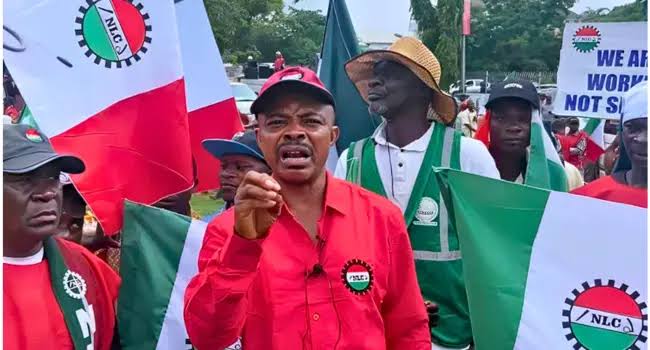
The Organised Labour has confirmed full mobilisation for an indefinite nationwide strike in response to the recent increase in electricity tariffs and unresolved issues regarding the new minimum wage for workers.
Benson Upah, spokesperson for the Nigeria Labour Congress (NLC), announced that a strategy meeting was held over the weekend to ensure comprehensive participation from all affiliates and states in the industrial action. “Mobilisation is very high,” Upah stated, emphasizing that key sectors would be fully affected.
Several major unions, including the Medical & Health Workers’ Union of Nigeria (MHWUN), the Association of Senior Civil Servants of Nigeria (ASCSN), the Nigeria Union of Petroleum and Natural Gas Workers (NUPENG), and the Academic Staff Union of Universities (ASUU), among others, have already issued strike notices to their members.
After numerous unsuccessful negotiations with the Tripartite Committee on the National New Minimum Wage, the NLC and the Trade Union Congress (TUC) declared the strike, citing the government’s refusal to reverse the electricity tariff hike and failure to reach an agreement on the new minimum wage. NLC President Joe Ajaero criticized the government’s inaction despite previous ultimatums and protests.
ASUU confirmed that its branches would join the strike, with no lecturers attending classes until the industrial action is called off. Other unions, such as the Senior Staff Association of Nigerian Universities (SSANU) and the Academic Staff Union of Polytechnics (ASUP), have also pledged full participation.
The Federal Government, however, described the planned strike as premature and illegal. Attorney General of the Federation and Minister of Justice, Lateef Fagbemi, pointed out that the unions did not issue the mandatory 15-day strike notice as required by law, and that ongoing negotiations had not been concluded.
Despite this, the National Assembly is working to mediate the situation. Senate President Godswill Akpabio and House Speaker Tajudeen Abbas, along with other officials, met with labour leaders to seek a resolution. Akpabio highlighted the need for careful negotiation to avoid further economic issues, including potential unemployment in the private sector.
Labour leaders stressed that their demands for a new minimum wage are essential for all Nigerians, arguing that current wages do not meet basic living standards. They called for a fair wage that reflects the economic realities faced by workers.
Meanwhile, the Christian Association of Nigeria (CAN) and other groups have expressed concerns about the potential economic impact of the strike, urging both the government and labour unions to return to dialogue.
As the nation braces for the strike, the situation underscores the ongoing struggle between workers’ demands for fair compensation and the government’s efforts to manage economic challenges.
Comments